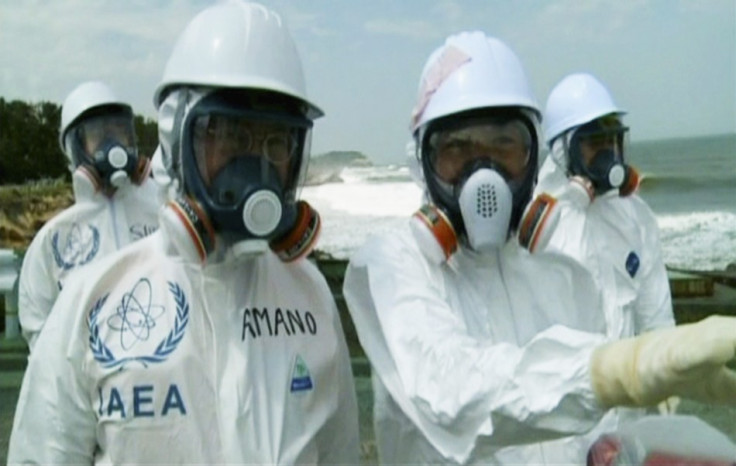Fukushima: Half of Children Tested Positive For Radiation

Medical tests on children living in three towns near the crippled Fukushima Dai-Ichi nuclear plant revealed a shocking 45 per cent of those surveyed suffered low-level thyroid radiation exposure, Japan's government said in a statement.
While the statement did not comment on the origin of the contamination, the announcement follows reports that radioactive materials were found in food after radiation leaks following the meltdown of three reactors at the Tokyo Electric Power Co. plant on March 11.
1,080 children aged up to 15 and coming from three towns, Iwaki, Kawamata and Iitate, all located between 38 to 47 kilometres from the reactors were examined and tested for the study.
The tests, conducted by the government's nuclear accident taskforce, took place between March 24 and 30 and showed that radioactive elements were detected in the thyroid glands of 45 per cent of more than 1,000 children aged up to 15 years old.
Japanese government official have however insisted the results of the tests, were not considered as alarming in terms of impact on children's health.
"The government's official position is that none of the children showed radiation levels that would be problematic," said one official, speaking on condition of anonymity, the AFP reported.
None of the children tested suffered radiation contamination higher than 0.2 microsieverts (mSv), which is the standard set by Japan's Nuclear Safety Commission.
However, following the results, the commission is now set to consider tightening its safety standard to 0.1 mSv, after the level was recorded in one child tested.
"Only one child showed a contamination level of 0.1 mSv per hour, the highest of the group," the official added.
Despite officials insisting the results were not overly worrying, the report is set to cause concern for the parents of the children living in the areas located near the Fukushima power Plant, especially as children and babies are susceptible to poisoning from radioactive iodine, which can accumulate in the thyroid and cause cancer, according to the World Health Organization.
In an attempt to stop popular discontent, officials in Fukushima have also announced the authorities plan to conduct life-long medical checks for the 360,000 residents under the age of 18 years old.
However habitants say they are still worried, especially as tests on products such as spinach, tea, milk, and fish previously showed they had been contaminated with cesium and iodine as far as 360 kilometres (224 miles) from the plant.
More bad news followed as officials confirmed rice from Hokota City, about 150 kilometres from Dai-Ichi, was found to contain low levels or cesium on Friday.
© Copyright IBTimes 2025. All rights reserved.





















